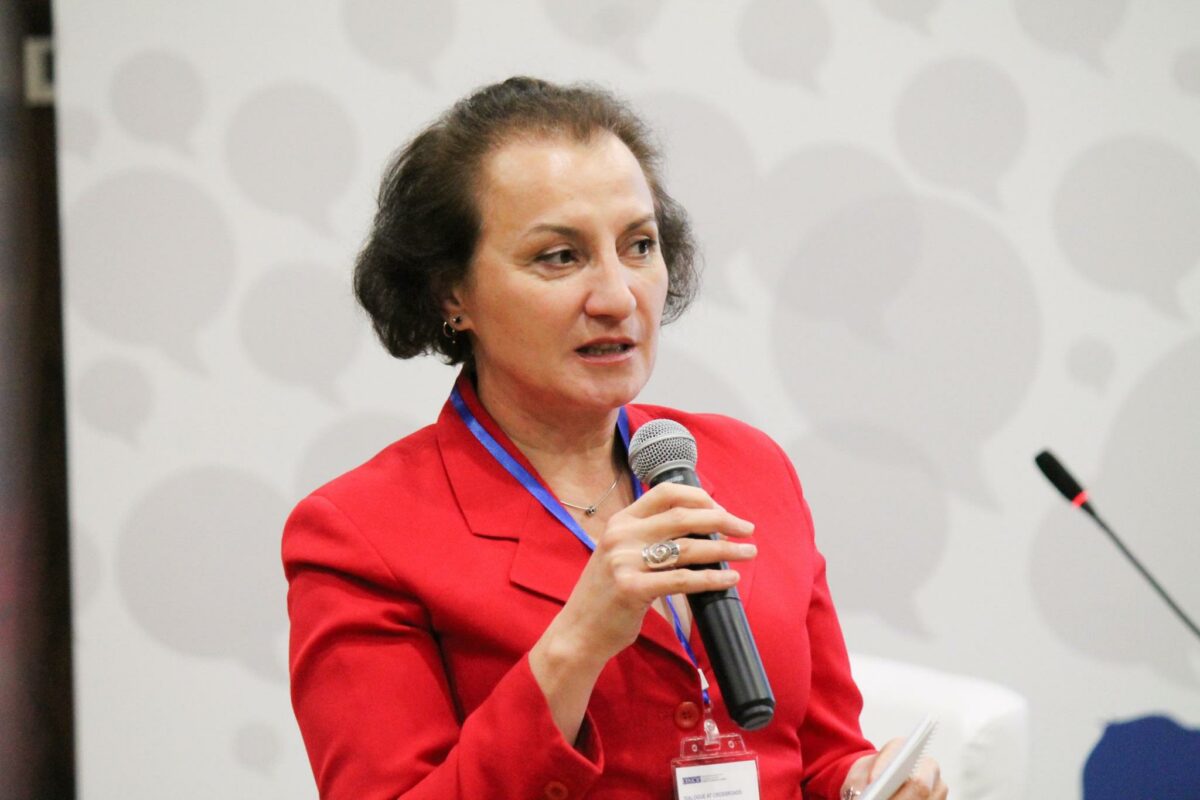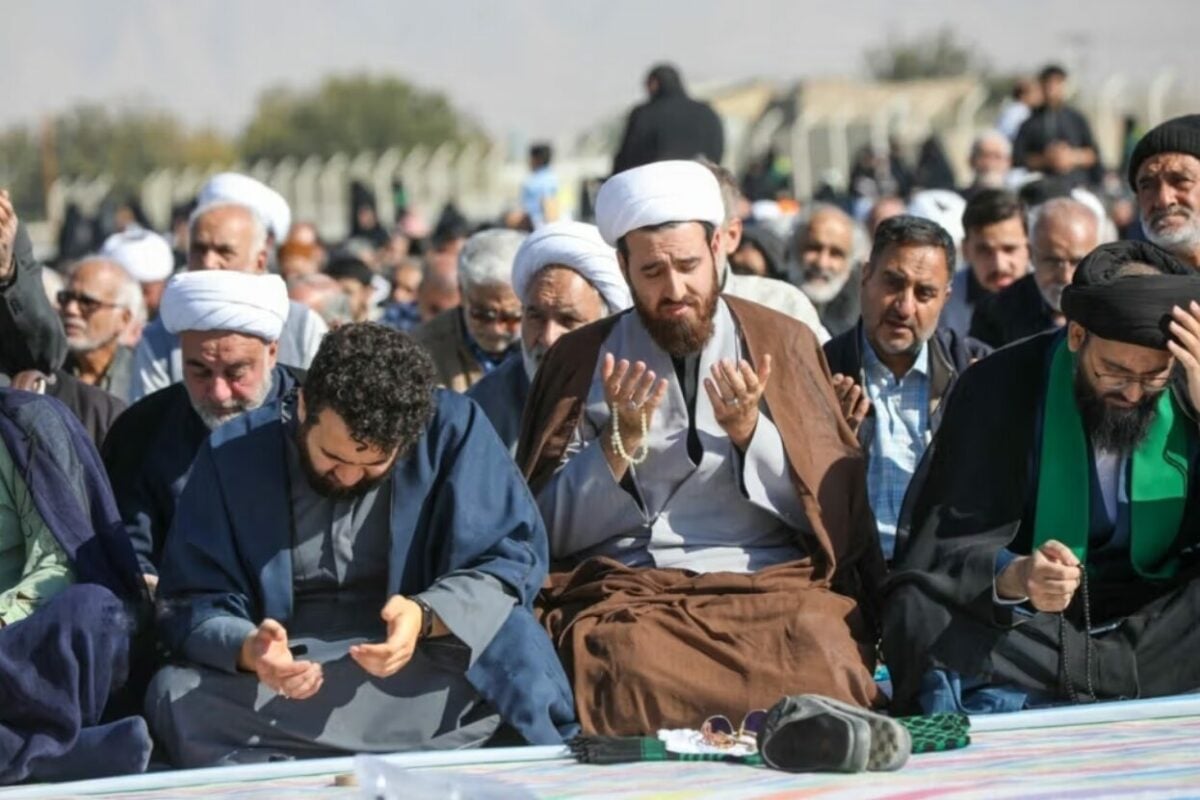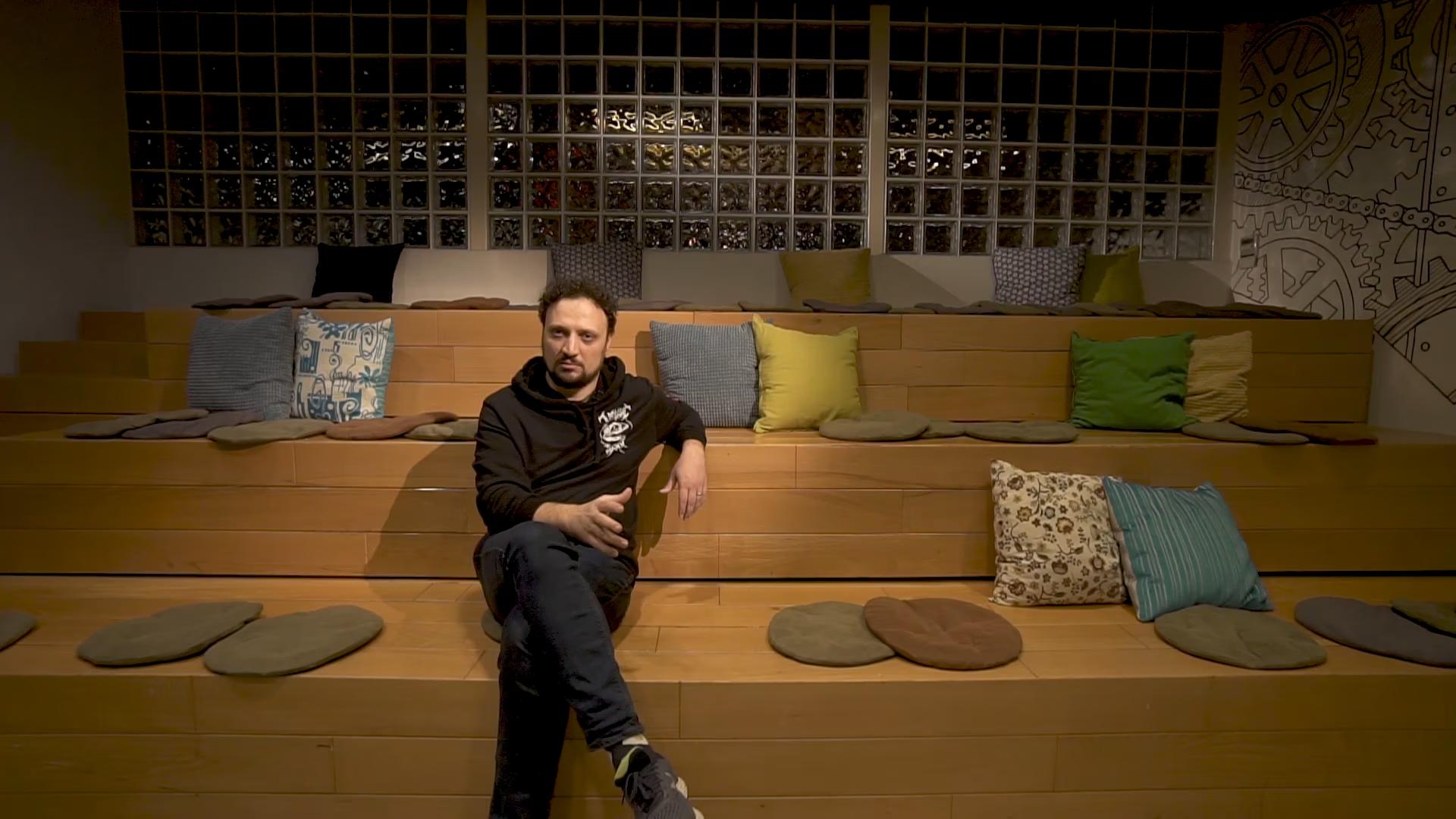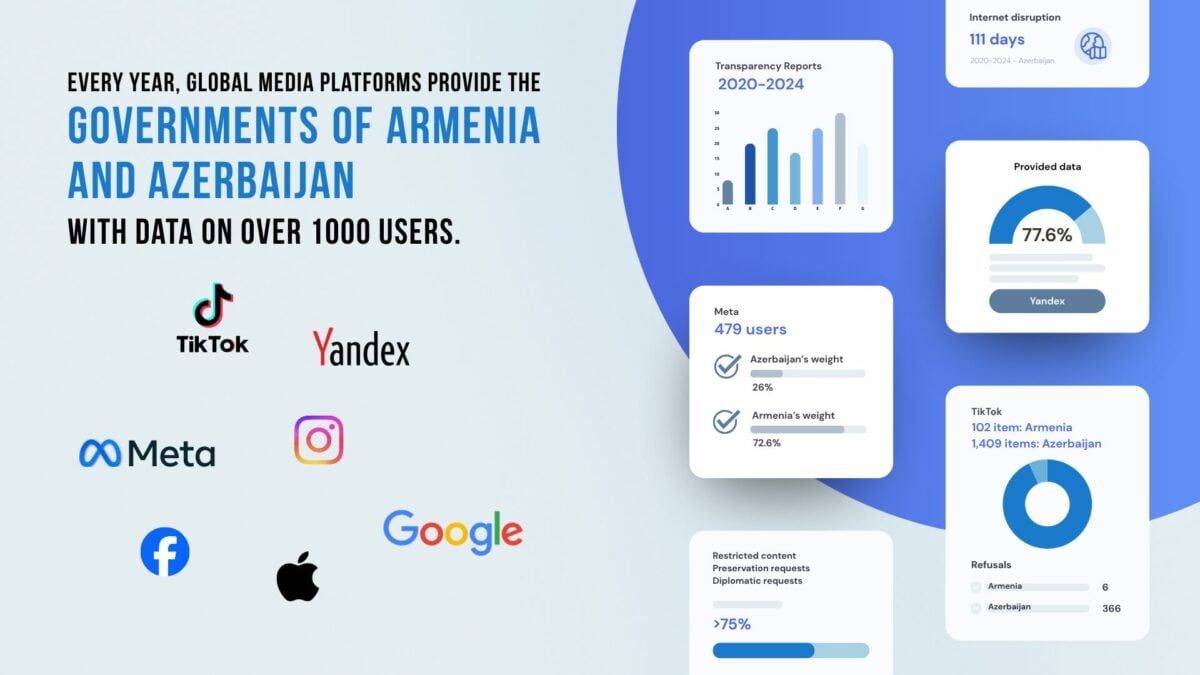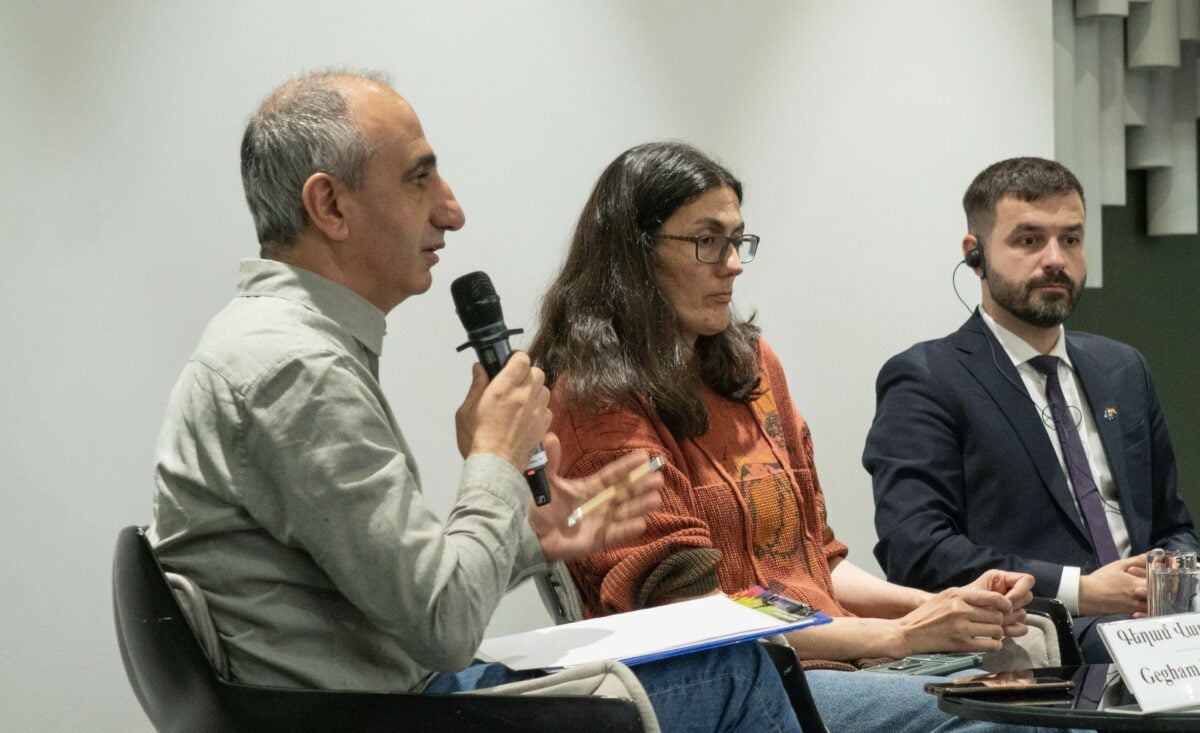Natalya Mirimanova is an independent researcher and conflict resolution specialist. She has great experience, especially in the settlement of conflicts in the post-Soviet space and in organizing dialogue. She has worked in the South Caucasus, Central Asia and Eastern Europe.
She has been a consultant to the UN, the OSCE, as well as to state and civil initiatives in various countries aimed at preventing and resolving conflicts that break out or continue in their territory.
At different stages of the escalation of the Armenian-Azerbaijani conflict in Nagorno Karabakh in general, Natalya Mirimanova tried to organize dialogues and find solutions through conversations.
And now, almost 30 years after her first attempts, she is quite pessimistic about even the slightest possibility of dialogue.
If before the war one could still talk about a certain dialogue, then now it is difficult to imagine that Armenians and Azerbaijanis can live side by side in peace, forgetting the ongoing hostilities right now. The price of spilled blood is too high.
Unfortunately, after all these wars, there is such a feeling. It existed during the first Karabakh war. But now I think there is a big difference.
During the First War, even immediately after its end, human relations remained. Even anger, malice, resentment, hatred. Emotions were diverse, but they were human emotions. Some remembered previous life together, had good or not so good memories, but the feelings were real.
By organizing dialogues in those years, we realized that people could see a human being in the other. Kind, funny, angry, aggressive… that wasn’t important, it was important that they saw a person.
And now there are people at war who have never seen each other. Armenians who have never seen an Azerbaijani in their lives, Azerbaijanis who have never seen an Armenian.
They grew up in a mythical reality. The information space created during these years, to put it mildly, did not contribute to the construction of at least minimal human relations.
And that too is our fault, because all of our dialogue projects and films, designed for a large audience, involved narrow circles. Or we failed to break the dominant ideological agenda.
Sometimes I get the impression that now the sides are at war with aliens, say, from Mars. In other words, the opponent is imagined as a cardboard stencil, not as a person who has blood, bones, thoughts, desires, hopes, etc.
And that’s the worst thing in this war.
During the First War, there were cases when Armenians and Azerbaijanis could sit at the same table, drink together, and then move to their own trenches. It was a people-to-people war, and now it’s a war against a collective evil, an Alien, and it seems that there are no basic preconditions for dialogue. There is no desire to get to know each other, to get acquainted…
All mediators warned that war, in addition to being a catastrophe, impedes (at least for decades, if not forever) dialogue.
It is understandable that all the talk about peaceful coexistence does not resonate with either side now.
For 30 years, there have been various programs to build bridges, such as journalists’ visits, creative projects, and so on. There were also many Armenian-Turkish platforms. Did they leave no impression?
I can say both yes and no. These were the experiments that now clearly show which of the participants were the real core of these projects, and who were just tourists.
Speaking of Armenian-Turkish projects, let us not forget that many Turkish participants, especially well-known journalists, are now either in prison or aren’t around, were persecuted in different ways, were sagged or silenced by Erdogan.
As it is known, war is one of the methods of uniting around the government.
I suppose that in the case of Azerbaijan, the war united those who were tough opponents of Aliyev (and there were many of them in our dialogues). Now that everyone has become an active supporter of Aliyev, their opposition spirit has simply vanished. By the way, cheering war on behalf of some from this group is simply unacceptable.
These people are not only standing with their people (which can be understood), but also with their president. And this is a bad sign for me, which shows that the future of democracy in Azerbaijan is highly questionable. At least for the foreseeable future.
The society in Armenia is consolidated as well, but as far as I can see, Armenian media are working at least more professionally.
Of course, it is unlikely that they will prepare a critical report now, given the martial law, but the media in Armenia is freer than in Azerbaijan. And it has always been. Besides, since 2018 democracy in Armenia has become a daily practice, the society has undergone a profound transformation.
Armenian journalists are accustomed to working with ethical norms, they are more resilient to engaging in propaganda, unlike their colleagues in Azerbaijan. It has to do with the tradition of media performance and political realities rather than with a ‘national character”.
How important are the standards of freedom of speech and press? Or do these indicators not change anything during the war? Everything is decided by weapons.
Of course, these are important indicators.
War always brings limitations, that is understandable. And you have to be a very strong and independent media outlet if you decide, for example, to go to Iraq like the American media and shoot an anti-American report, as it happened. Broadcasts in the US of anti-war rallies during the Vietnam war was a strong factor in the US withdrawal from Vietnam.
But in this situation, it is difficult to imagine such a thing because each side considers the war as just.
Of course, there is no doubt now that Azerbaijan has started hostilities, but in any case, the parties believe that waging war is a just cause, moreover, a moral one.
Over the years we have produced great media products with the participation of both parties. It is hard to imagine how now you can sit at the same table and discuss with the same people. However, it is not impossible.
I want to give an example of the Russian-Georgian war of 2008, after which, only 40 days after its end, we were able to gather Georgians, Ossetians and Abkhazians around one table. Everyone was able to come, even though they had lost relatives, it was psychologically very difficult to have a dialogue. The result was a very human encounter with some amazing stories. For example, a Georgian who had to leave South Ossetia in a hurry dreamed of one day bringing back his late daughter’s videotape. And the Ossetians went to his house, took the recording and found a way to pass it on.
Another Georgian had a walnut harvest, the Ossetians volunteered to gather the walnuts, sell them and sent the money to the owner of the garden.
Even though in the long run it did not lead to any major political breakthrough, the very fact of the sides having met and engaged in dialogue was important and helped sustain previous long-term activities aimed at building relationships and confidence.
I think such meetings are very important.
The current war is a brutal one with many casualties and seemingly unlimited ambitions on the side of Azerbaijan, the final destination of the military campaign remaining unclear. Do they want to destroy everyone living in Karabakh? This question dominates in the Armenian public sphere.
Is it possible to expect that Nagorno Karabakh will be recognized as an independent entity and thus receive international protection?
Yes, it is possible. I have seen the documents collected by my Armenian colleagues, calls for the Remedial Recognition, that is, the “recognition for salvation” formula for Nagorno Karabakh.
Threat of extinction is one of the criteria that can bring recognition from the point of view of international law. This is how South Sudan and East Timor received their independence.
When there is a danger of extinction of the population and all other options are exhausted, this formula applies.
Yes, I think self-determination of Nagorno Karabakh has its logic. I can not say whether it will succeed or not, but given that Azerbaijan does not offer a constructive agenda (cultural autonomy, as everyone understands is neither serious nor realistic), we are left with the recognition options.
Azerbaijan speaks of restoring territorial integrity by establishing an autonomous region of Karabakh, building normal relations and economic development projects. But carpet bombings of this region negates these proclamations.
If the goal is to rebuild a united country and integrate new citizens, then war is least sensible instrument.
By the way, Georgia realized this, perhaps too late. It acknowledged that war should not be in the arsenal of building bridges with Abkhaz and Ossetians. And it offered a strategy of humanitarian relations, assistance to the inhabitants of the conflict zones. It completely changed the official rhetoric and started implementing serious health and education programs, which are used by Abkhazians and Ossetians.
But it all started with rhetoric and attitude. Mikhail Saakashvili used to call the leaders of Abkhazia bandits, terrorists, etc. And then the vocabulary changed, there is no recognition or acknowledgement of the authorities there, but people on the other side are called brothers and friends. And no one is talking about restoring control by military means anymore, they are talking about restoring relations.
Had Georgian leaders done the same 20 years ago, many problems could have been avoided. But this is one of the examples when a state does not aim at the destruction of the population, but on the contrary, engages with them, even if sometimes only rhetorically.
For the last three decades, Azerbaijan’s propaganda has worked using a completely opposite logic.
If an average European tries to understand the whole picture of this war, can s/he do it on the basis of reports by the international media? We often see that media coverage is superficial or artificially equates both sides.
I think in Europe sympathy is on the side of Armenia and Armenians, but not because people are convinced that Armenia is right in this conflict, but because of the sympathy for the new democratic stage that began after the Velvet Revolution.
It is also facilitated by the effective and active work of the Armenian Diaspora.
But if we talk about media coverage, given the standards of journalism, we will see that balanced reporting concerns mainly human stories. French reports, for example, show victims and human tragedies in both Stepanakert and Ganja. In this case, the balance is maintained.
But when it comes to politics, there is no particular balance. Aliyev’s regime is unequivocally perceived in Europe, according to all ratings, as a dictatorial regime, taking into account the level of corruption, political repression, pressure on the media, etc. That is why an average European is unlikely to sympathize with a dictatorial regime.
Political and cultural preferences and sympathies of Europeans are always on the side of a more democratic side in the conflict or of a victim.
Let me take the example of South Sudan again, where people rebelled against tyranny and gained independence. The sympathy of the international community was on their side. This did not mean that in the end this side was more peaceful or did not inflict death and destruction on the other.
And what is Russia’s role? In Armenia and in Karabakh, the programs of Russian federal channels are broadcast freely with propaganda talk shows. Does it affect traditional trust in Russia?
I do not watch these programs; I just do not have the moral strength for that.
In this situation, Russia has shown itself to be an unreliable partner and not a powerful one. Explaining Russia’s no-interference in the hostilities by its role of a mediator or by the limits set by the international law, does not reflect a complete picture. In the case of Ukraine, for example, Russia did not think long, just went ahead and annexed Crimea and deployed its military contingent in Donbas, despite being a signatory to the Budapest Memorandum guaranteeing Ukraine’s territorial integrity, and bluntly violated international law.
Russia, like some other states, has double standards in their foreign policy.
Armenia and Russia are strategic military partners (in addition the CSTO membership); it is natural that there are obligations. Of course, Armenia relied on Russia, first of all, for defense. Otherwise, why would it hand over its strategic resources and facilities to Russia, invite Russian border guards, join the CSTO where Armenia does not really belong as a democratic country having close cultural relations with Europe and the United States.
Recently, the Turkic Council where Armenia’s CSTO partners participate, strongly supported Azerbaijan in the current war.
Moreover, being in Russia’s geopolitical orbit, Armenia, in my opinion, suffered reputational losses.
Before recent warming in the Georgian-Armenian relations, Armenia had not voted favorably on the UN resolutions on the return of Georgian refugees to Abkhazia and South Ossetia. Its decision on the vote on the annexation of Crimea was unfortunate.
These steps put Armenia in a rather difficult situation – potential allies, such as Georgia and Ukraine, of course, see it. It is clear that Armenia had no choice, but this hindered some important bi-lateral relationships.
In general, cooperation with Russia is a difficult project for Armenia. It was clear that protection in case of military aggression was the payoff for following Russia’s geopolitical agenda. But that protection did not materialize.
God willing, the war will end, and Armenia will be able to think about its future geopolitical direction and partnerships.
Interview by Nune Hakhverdyan

